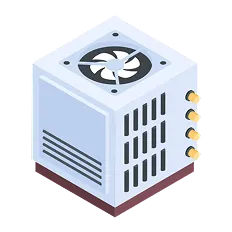Minimum Wages Law | Wyoming
/wiki/wyoming-minimum-wage
Minimum Wages Law | Wisconsin
/wiki/wisconsin-minimum-wage
Minimum Wages Law | Texas
/wiki/texas-minimum-wage
Minimum Wages Law | West Virginia
/wiki/west-virginia-minimum-wage
Minimum Wages Law | Washington
/wiki/washington-minimum-wage
Minimum Wages Law | Virginia
/wiki/virginia-minimum-wage
Minimum Wages Law | Utah
/wiki/utah-minimum-wage
Minimum Wages Law | Vermont
/wiki/vermont-minimum-wage
Minimum Wages Law | Tennessee
/wiki/tennessee-minimum-wage
Minimum Wages Law | South Dakota
/wiki/south-dakota-minimum-wage
Minimum Wages Law | Pennsylvania
/wiki/pennsylvania-minimum-wage
Minimum Wages Law | Oregon
/wiki/oregon-minimum-wage
Minimum Wages Law | South Carolina
/wiki/south-carolina-minimum-wage
Minimum Wages Law | Rhode Island
/wiki/rhode-island-minimum-wage
Minimum Wages Law | Oklahoma
/wiki/oklahoma-minimum-wage
Minimum Wages Law | Ohio
/wiki/ohio-minimum-wage
Minimum Wages Law | North Dakota
/wiki/north-dakota-minimum-wage
Minimum Wages Law | New Mexico
/wiki/new-mexico-minimum-wage
Minimum Wages Law | North Carolina
/wiki/north-carolina-minimum-wage
Minimum Wages Law | New York
/wiki/new-york-minimum-wage
Minimum Wages Law | New Hampshire
/wiki/new-hampshire-minimum-wage
Minimum Wages Law | New Jersey
/wiki/new-jersey-minimum-wage
Minimum Wages Law | Nebraska
/wiki/nebraska-minimum-wage
Minimum Wages Law | Nevada
/wiki/nevada-minimum-wage
Minimum Wages Law | Montana
/wiki/montana-minimum-wage
Minimum Wages Law | Missouri
/wiki/missouri-minimum-wage
Minimum Wages Law | Kansas
/wiki/kansas-minimum-wage
Minimum Wages Law | Mississippi
/wiki/mississippi-minimum-wage
Minimum Wages Law | Minnesota
/wiki/minnesota-minimum-wage
Minimum Wages Law | Michigan
/wiki/michigan-minimum-wage
Minimum Wages Law | Kentucky
/wiki/kentucky-minimum-wage
Minimum Wages Law | Massachusetts
/wiki/massachusetts-minimum-wage
Minimum Wages Law | Maryland
/wiki/maryland-minimum-wage
Minimum Wages Law | Louisiana
/wiki/louisiana-minimum-wage
Minimum Wages Law | Maine
/wiki/maine-minimum-wage
Minimum Wages Law | Iowa
/wiki/iowa-minimum-wage
Minimum Wages Law | Illinois
/wiki/illinois-minimum-wage
Minimum Wages Law | Indiana
/wiki/indiana-minimum-wage
Minimum Wages Law | Idaho
/wiki/idaho-minimum-wage
Minimum Wages Law | Hawaii
/wiki/hawaii-minimum-wage
Minimum Wages Law | Georgia
/wiki/georgia-minimum-wage
Minimum Wages Law | District of Columbia
/wiki/district-of-columbia-minimum-wage
Minimum Wages Law | Florida
/wiki/florida-minimum-wage
Minimum Wages Law | Delaware
/wiki/delaware-minimum-wage
Minimum Wages Law | Connecticut
/wiki/connecticut-minimum-wage
Minimum Wages Law | Colorado
/wiki/colorado-minimum-wage
Minimum Wages Law | California
/wiki/california-minimum-wage
Minimum Wages Law | Arkansas
/wiki/arkansas-minimum-wage
Minimum Wages Law | Arizona
/wiki/arizona-minimum-wage
Minimum Wages Law | Alaska
/wiki/alaska-minimum-wage
Mandatory Break Law | Wyoming
/wiki/construction-compliance-mandatory-break-law-in-wyoming
Minimum Wages Law | Alabama
/wiki/alabama-minimum-wage
Mandatory Break Law | Virginia
/wiki/construction-compliance-mandatory-break-law-in-virginia
Mandatory Break Law | West Virginia
/wiki/construction-compliance-mandatory-break-law-in-west-virginia
Mandatory Break Law | Washington
/wiki/construction-compliance-mandatory-break-law-in-washington
Mandatory Break Law | Wisconsin
/wiki/construction-compliance-mandatory-break-law-in-wisconsin
Mandatory Break Law | Vermont
/wiki/construction-compliance-mandatory-break-law-in-vermont
Mandatory Break Law | Utah
/wiki/construction-compliance-mandatory-break-law-in-utah
Mandatory Break Law | Texas
/wiki/construction-compliance-mandatory-break-law-in-texas
Mandatory Break Law | Tennessee
/wiki/construction-compliance-mandatory-break-law-in-tennessee
Mandatory Break Law | South Dakota
/wiki/construction-compliance-mandatory-break-law-in-south-dakota
Mandatory Break Law | South Carolina
/wiki/construction-compliance-mandatory-break-law-in-south-carolina
Mandatory Break Law | Pennsylvania
/wiki/construction-compliance-mandatory-break-law-in-pennsylvania
Mandatory Break Law | Rhode Island
/wiki/construction-compliance-mandatory-break-law-in-rhode-island
Mandatory Break Law | Oklahoma
/wiki/construction-compliance-mandatory-break-law-in-oklahoma
Mandatory Break Law | Ohio
/wiki/construction-compliance-mandatory-break-law-in-ohio
Mandatory Break Law | Oregon
/wiki/construction-compliance-mandatory-break-law-in-oregon
Mandatory Break Law | North Dakota
/wiki/construction-compliance-mandatory-break-law-in-north-dakota
Mandatory Break Law | North Carolina
/wiki/construction-compliance-mandatory-break-law-in-north-carolina
Mandatory Break Law | New Mexico
/wiki/construction-compliance-mandatory-break-law-in-new-mexico
Mandatory Break Law | New York
/wiki/construction-compliance-mandatory-break-law-in-new-york
Mandatory Break Law | HVAC | Nevada
/wiki/construction-compliance-mandatory-break-law-in-hvac-industry-for-nevada
Mandatory Break Law | HVAC | Kentucky
/wiki/construction-compliance-mandatory-break-law-in-hvac-industry-for-kentucky
Mandatory Break Law | HVAC | Kansas
/wiki/construction-compliance-mandatory-break-law-in-hvac-industry-for-kansas
Mandatory Break Law | HVAC | Georgia
/wiki/construction-compliance-mandatory-break-law-in-hvac-industry-for-georgia
Mandatory Break Law | HVAC | Minnesota
/wiki/construction-compliance-mandatory-break-law-in-hvac-industry-for-minnesota
Mandatory Break Law | HVAC | Nebraska
/wiki/construction-compliance-mandatory-break-law-in-hvac-industry-for-nebraska
Mandatory Break Law | HVAC | Montana
/wiki/construction-compliance-mandatory-break-law-in-hvac-industry-for-montana
Mandatory Break Law | HVAC | Louisiana
/wiki/construction-compliance-mandatory-break-law-in-hvac-industry-for-louisiana
Mandatory Break Law | HVAC | Missouri
/wiki/construction-compliance-mandatory-break-law-in-hvac-industry-for-missouri
Mandatory Break Law | HVAC | Mississippi
/wiki/construction-compliance-mandatory-break-law-in-hvac-industry-for-mississippi
Mandatory Break Law | HVAC | Michigan
/wiki/construction-compliance-mandatory-break-law-in-hvac-industry-for-michigan
Mandatory Break Law | HVAC | Massachusetts
/wiki/construction-compliance-mandatory-break-law-in-hvac-industry-for-massachusetts
Mandatory Break Law | HVAC | Maine
/wiki/construction-compliance-mandatory-break-law-in-hvac-industry-for-maine
Mandatory Break Law | HVAC | Maryland
/wiki/construction-compliance-mandatory-break-law-in-hvac-industry-for-maryland
Mandatory Break Law | HVAC | Iowa
/wiki/construction-compliance-mandatory-break-law-in-hvac-industry-for-iowa
Mandatory Break Law | HVAC | Hawaii
/wiki/construction-compliance-mandatory-break-law-in-hvac-industry-for-hawaii
Mandatory Break Law | HVAC | Indiana
/wiki/construction-compliance-mandatory-break-law-in-hvac-industry-for-indiana
Mandatory Break Law | HVAC | Illinois
/wiki/construction-compliance-mandatory-break-law-in-hvac-industry-for-illinois
Mandatory Break Law | HVAC | Idaho
/wiki/construction-compliance-mandatory-break-law-in-hvac-industry-for-idaho
Mandatory Break Law | HVAC | Delaware
/wiki/construction-compliance-mandatory-break-law-in-hvac-industry-for-delaware
Mandatory Break Law | HVAC | District of Columbia
/wiki/construction-compliance-mandatory-break-law-in-hvac-industry-for-district-of-columbia
Mandatory Break Law | HVAC | Florida
/wiki/construction-compliance-mandatory-break-law-in-hvac-industry-for-florida
Mandatory Break Law | HVAC | Connecticut
/wiki/construction-compliance-mandatory-break-law-in-hvac-industry-for-connecticut
Mandatory Break Law | HVAC | Colorado
/wiki/construction-compliance-mandatory-break-law-in-hvac-industry-for-colorado
Mandatory Break Law | HVAC | California
/wiki/construction-compliance-mandatory-break-law-in-hvac-industry-for-california
Mandatory Break Law | HVAC | Arizona
/wiki/construction-compliance-mandatory-break-law-in-hvac-industry-for-arizona
Mandatory Break Law | HVAC | Arkansas
/wiki/construction-compliance-mandatory-break-law-in-hvac-industry-for-arkansas
Mandatory Break Law | HVAC | Alaska
/wiki/construction-compliance-mandatory-break-law-in-hvac-industry-for-alaska
Mandatory Break Law | HVAC | Alabama
/wiki/construction-compliance-mandatory-break-law-in-hvac-industry-for-alabama
























